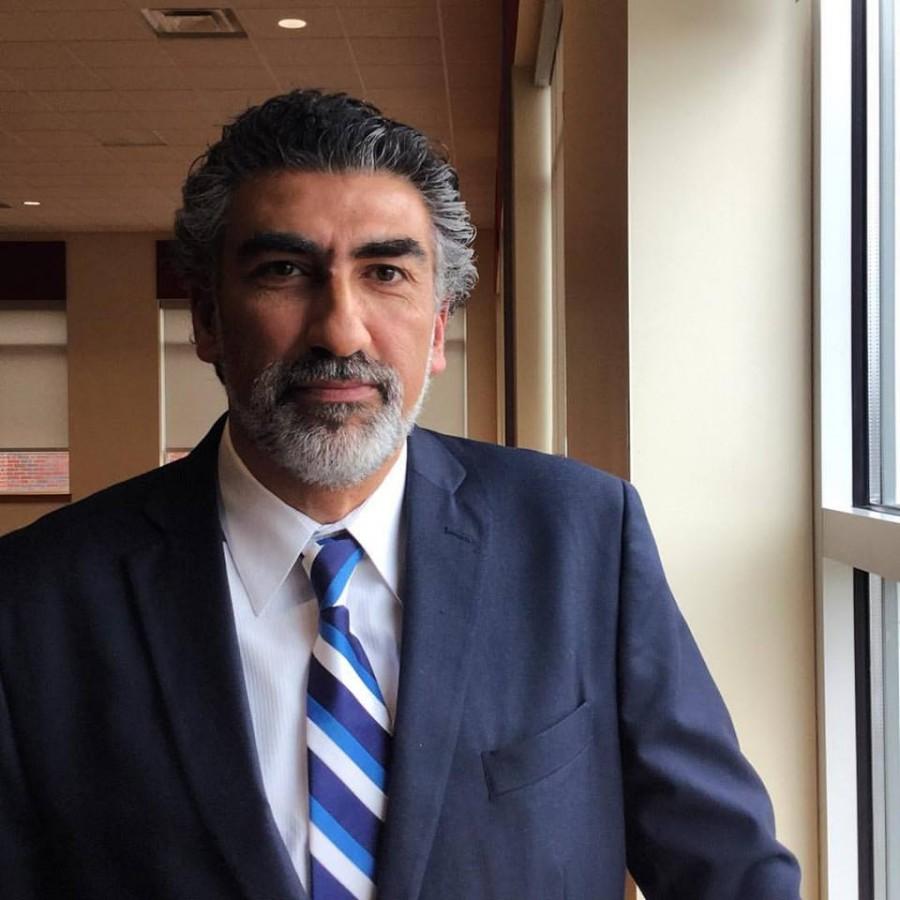AIC Challenges Islamophobia
Guest Speaker and American Muslim Monghi Dhaouadi educated the campus about Muslim Faith on Tuesday, January 26.
February 4, 2016
It’s 1985 and Mongi Dhaouadi is walking through downtown Lincoln, Nebraska. He hears a voice getting closer and closer behind him. Although his English is minimal, he can tell this person is angry.
“Go back to Iran!” shouted the angry American, breathing down Mongi’s neck.
Now the Senior Program Officer for Tunisia and North Africa at the Center for the Study of Islam and Democracy, Dhaouadi began to face prejudices as soon as he immigrated to America from Tunisia.
Dhaouadi spoke at American International College on the morning of Tuesday, January 26 to discuss and challenge American Islamophobia with the community. The event was the first in a series of cultural diversity workshops put on by the Office of Diversity and Community Engagement at AIC.
Dhaouadi, also the Executive Director of CAIR, or the Council on American-Islamic Relations, is the father of AIC junior and PRIDE, Persons Ready In Defense of Ebony, board member Anyssa Dhaouadi. The family from New London, Connecticut began the event with a video titled “American Muslims: Facts vs. Fiction.”
“American Muslims are not any different than any other group,” said Mongi. According to the U.S. State Department, the American Muslim population is 7 billion.
Yet, only 27 percent of Americans polled have a favorable view of the minority group, according to a 2014 Pew Forum.
“There are challenges to growing up Muslim in America,” said Anyssa. “If you wear the hijab, or headscarf, like I do, it’s hard to hide the fact that you’re Muslim.”
The Islamophobia stems from, “a lack of leadership, fear and ignorance,” said Mongi.
He noted that an overwhelming majority of those with negative opinions, have never even met a Muslim. The opposite is also true. For those who have met Muslims, they have favorable opinions of the group.
Mongi explained that most people think Muslims are newcomers to America. However, many slaves brought over in the African Slave Trade were Muslim and forced to change religion.
But the media plays a large role in shaping the minds of Americas. And many American Muslims may agree, that the media only covers the bad side of a story.
According to Mongi, “There are more than one hundred free clinics in the country run by Muslim doctors. Anyone can go to these clinics. But the news doesn’t cover that.”
The danger and threats of terrorism the news does cover, stem from what has become a household name: ISIS, or the Islamic State of Iraq and Syria.
But according to the Department of Homeland Security, the number one terrorist threat in America is actually the White Supremacists.
Part of Islamophobia is associating all Muslims with the ISIS terrorist group.
Although Mongi completely disagrees with the actions of ISIS, he understands their motivations.
“ISIS learned military tactics from the U.S. invasion of Iraq after 9/11,” said Mongi.
ISIS is now made up of former generals in Saddam Hussein’s army that were terrorized by the United States.
“They’re angry and nothing will satisfy them but death,” said Mongi about the group’s gruesome murders.
In order to challenge Islamophobia, Mongi didn’t want to give answers to the current situation, but rather get people interested about the situation.
The Campus Center Auditorium became tense at this point in the conversation.
Jeremy Antivo, a senior at AIC, understood that a topic such as Islamophobia needs to be intense.
“We were introduced to the Muslim faith through a terrible tragedy,” he said. “We were impressionable young kids.”
Antivo, who grew up Catholic in central New Jersey but no longer practices religion, thought Mongi’s talk was “eye-opening, informative and important to this campus.”
Another student in the audience asked if Mongi had any recommendations for the Student Government Association on Campus.
After calling himself a revolutionary, his response was to, “challenge the establishment in a positive way.”
Because Mongi’s daughter is a student at AIC, he is well aware of how diverse the campus is.
“Make sure student government is representative of that diversity,” he said.
The activist’s overall message was for Americans to interact with, and get to know Muslims. That is the first step in combatting Islamophobia.
“We belong here and we’re not leaving. So we might as well get along and get to know each other,” said Mongi.



